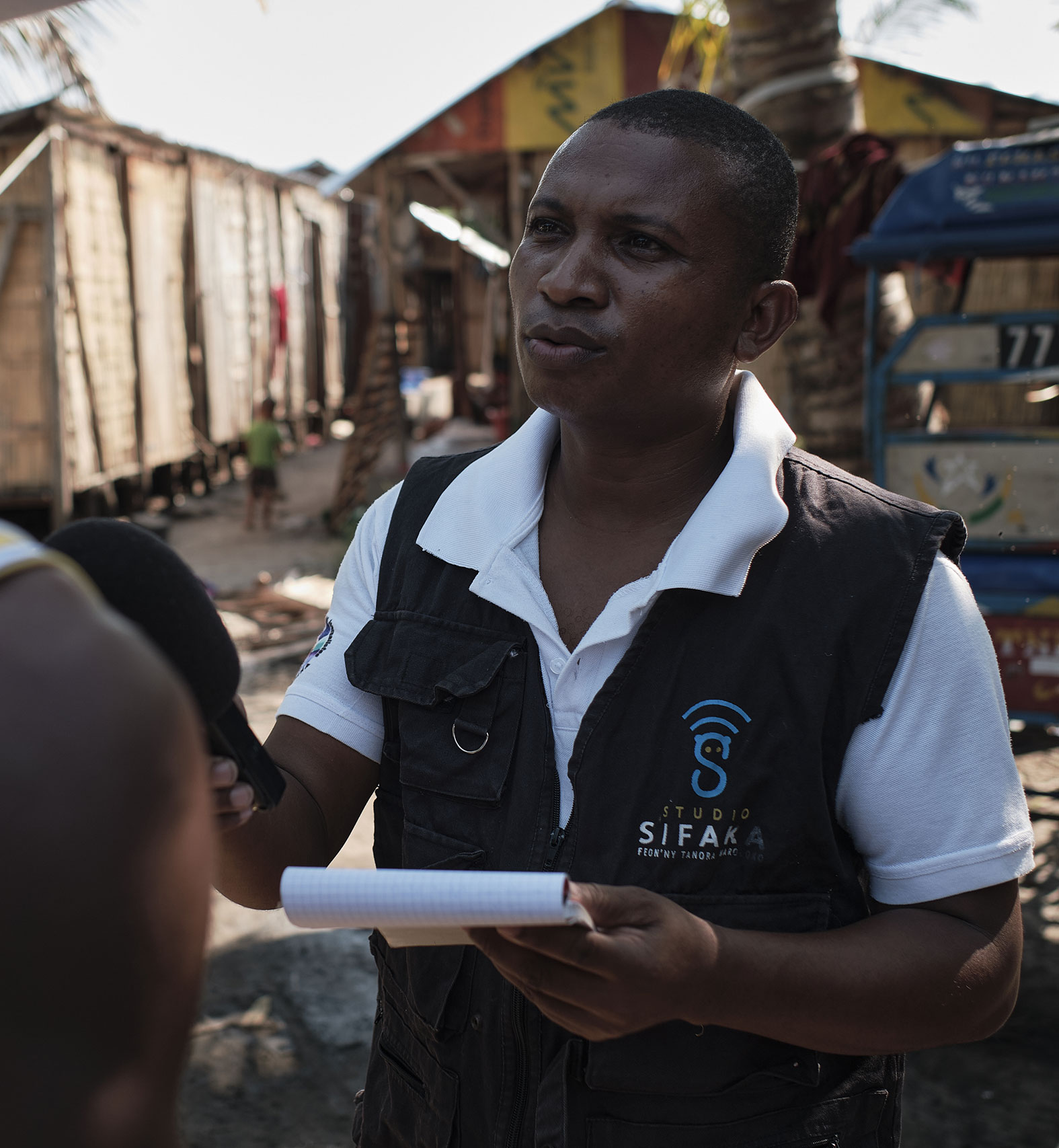From political pressures and financial woes to algorithm-driven falsehoods, 2024 tested the limits of public interest media. Fondation Hirondelle met these challenges by adapting content, formats, and methods to maintain trust and relevance with its audiences.
2024 was another difficult year for journalism. Press freedom came under increasing pressure—through legal, political and physical threats—especially in regions marked by conflict or authoritarian drift. At the same time, the accessibility of artificial intelligence tools fuelled large-scale disinformation, making it harder than ever for people to distinguish fact from fiction. For independent media like ours, these challenges were compounded by persistent funding constraints, demanding adaptability and resilience so that Fondation Hirondelle’s journalists and partners could continue in their mission to provide spaces for dialogue and reliable journalism that informs, includes, and empowers.
Combatting disinformation has become central to our editorial mission. In 2024 our teams stepped up their media literacy and fact-checking formats, not only to debunk false claims but to educate audiences on how disinformation works. At Studio Hirondelle RDC, for instance, one fact-check dismantled a viral claim that Mpox vaccines had been created by the West to exterminate the Congolese population—an assertion widely shared on social media, fuelling wider mistrust in potentially lifesaving vaccines. In the Central African Republic, false claims that men’s penises had suddenly started to disappear led to violence against “suspects” and their families. Radio Ndeke Luka carried out a thorough debunking of these rumours, including explanations of the tools they used to verify alleged photos of the missing appendices and clarifications from medical professionals. These digital and radio fact-check formats go beyond correction, explaining the verification process in order to help audiences to think critically and better detect manipulation.

In a year marked by growing polarization and shrinking space for meaningful dialogue, creating space for thoughtful, in-depth storytelling became more vital than ever. One such example was the launch of Perspectives, a new monthly mini-documentary radio format by Studio Kalangou in Niger. This programme brings to light societal phenomena through human-centred storytelling, from the painful testimony of a young woman who was a victim of cyberbullying, to the aspirations and challenges of a rising female football star.
Understanding the needs and expectations of our audiences is fundamental to producing journalism that is relevant, trusted, and impactful. In 2024, Fondation Hirondelle placed renewed emphasis on this principle. For example, the Reconnecting Audiences study, conducted with local communities in Ukraine, shed light on public perceptions of regional media and the deepening social divides caused by the war. These insights enabled partner media to adjust their editorial strategies—integrating more citizen voices and anchoring content more closely to lived local realities, reinforcing the media’s crucial role as a bridge within fragmented societies.

